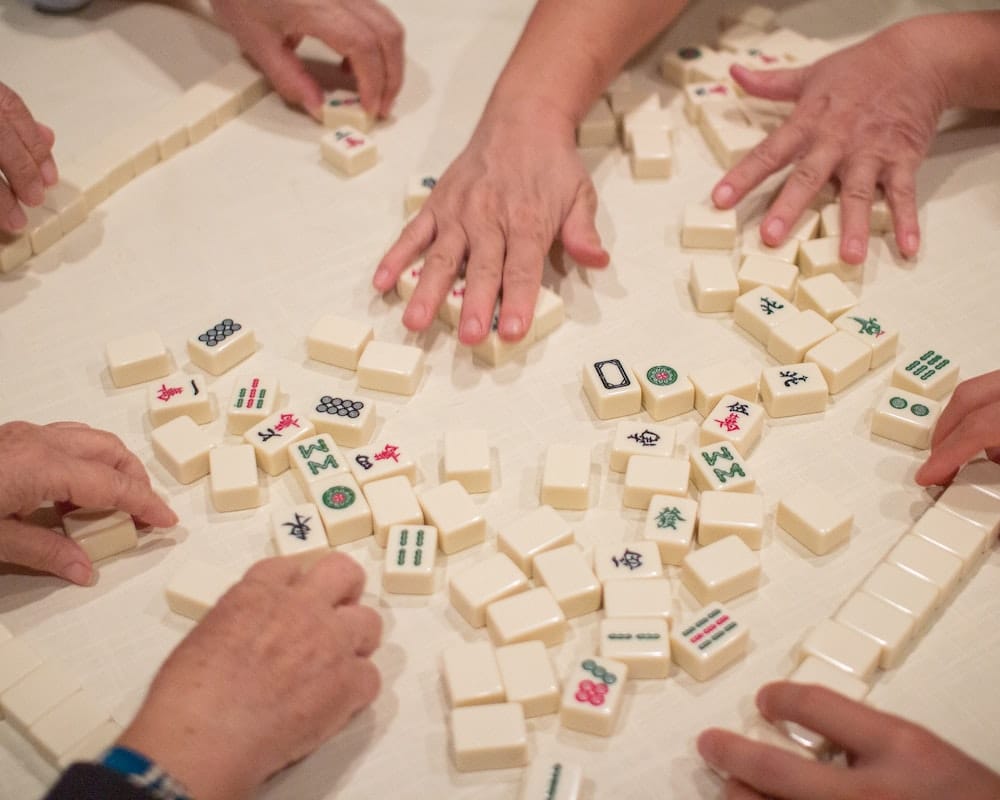Table of Contents
You’ve probably heard of Mahjong, the Chinese strategy game with rectangular tiles that make a lot of noise when shuffled? People have played Mahjong for hundreds of years, but it now appears to be a natural brain booster. Here in Urban Matter, we investigated the impact of Mahjong on players’ brains and discovered some interesting facts, so let’s dive into this topic!
Health Benefits of Mahjong Game
Mahjong was born in China in the nineteenth century, spawning from many different variations of similar games that had been played for hundreds of years in ancient societies. However, it was just in the 1920s that this intense strategy and skill game made its way to the United States and then the rest of the world.
People were always gathering around the Mahjong board for fun, but today University of Georgia research suggests Mahjong may offer players more than just a fun reason to get together with friends. Here are the top five brain benefits of playing Mahjong you should consider, no matter if you are an elder or a teenager.
#1 Mahjong Prevents Dementia
According to studies, playing Mahjong can help slow or reverse the progression of cognitive decline in people with mild cognitive impairment, which is associated with early dementia.
There have also been numerous studies that show that playing Mahjong improves verbal memory and forward digit-span memory in people with mild to moderate dementia (the ability to repeat a series of numbers). Moreover, the positive effects were discovered to last even after the participants stopped playing Mahjong for a month!
#2 Mahjong Reduces the Likelihood of Depression
University of Georgia researchers examined Chinese residents with depressive symptoms and compared them to the frequency with which they engaged in social activities such as Mahjong. Other social activities investigated included visiting friends, volunteering, and joining a sport or social club.
Overall, the team discovered that engaging in a variety of activities on a regular basis was associated with improved mental health. The study also discovered that urban residents who played Mahjong, in particular, appeared to be less depressed.
#3 Mahjong Improves Short-Term Memory
Mahjong is a strategic game that is more difficult than it appears. It makes you recall which tiles your opponents discard. This way, you’ll have a better idea of which tiles your opponents are looking for in order to win the game. There are also multiple combinations for a winning hand, so you must recall the various variations to see how you can win, improving your short-term memory.
#4 Mahjong Enhances Hand-Eye Coordination
Mahjong can also help you improve your hand-eye coordination. The game improves players’ reaction times as they decide which Mahjong tiles to keep and which to discard. There are penalties for players who play the wrong tile and violate the rules of play, so speed and accuracy in matching the patterns of the Mahjong tiles are critical.
That is why Mahjong players are significantly faster at pointing to a moving target with their dominant hands. There was also a significant difference in the accuracy of using non-dominant hands to point toward a stationary target.
This is because there would be a lot of repeated reaching and grasping movements in getting or throwing down tiles during a Mahjong game. Each Mahjong session consists of at least four rounds of four games, totaling sixteen games. As a result, the repeated actions may aid in maintaining or improving players’ fast finger-pointing performance.
#5 Mahjong Improves focus and pattern recognition
A Mahjong game has over 100 tiles, three different suits, and four of the same tiles. There are also miscellaneous tiles that players must recognize, such as “flowers” or “animals” — and they must do so quickly if the game is to run smoothly. As a result, this aspect of the game helps train players’ ability to concentrate and recognize patterns for extended periods of time.
One game of Mahjong usually lasts at least 2 to 4 hours. That means you have to concentrate for a long time, and after a round of Mahjong, your brain may get a little tired.
Mahjong Is All About Having Fun
Although playing Mahjong has some health benefits, it is more important to play for fun. Don’t get too stressed out or focused on winning money; instead, just relax and enjoy your khakis.
We should point out that playing the digital version of Mahjong differs from playing the physical game. Because the computer does a significant portion of your brain work for you, you lose some of the benefits.
Maintaining an active social life well into adulthood and old age can benefit mental health, and Mahjong is a game that requires at least three players. It is an excellent way to socialize with others and pave the way for the development of better social relationships to improve mental health.


